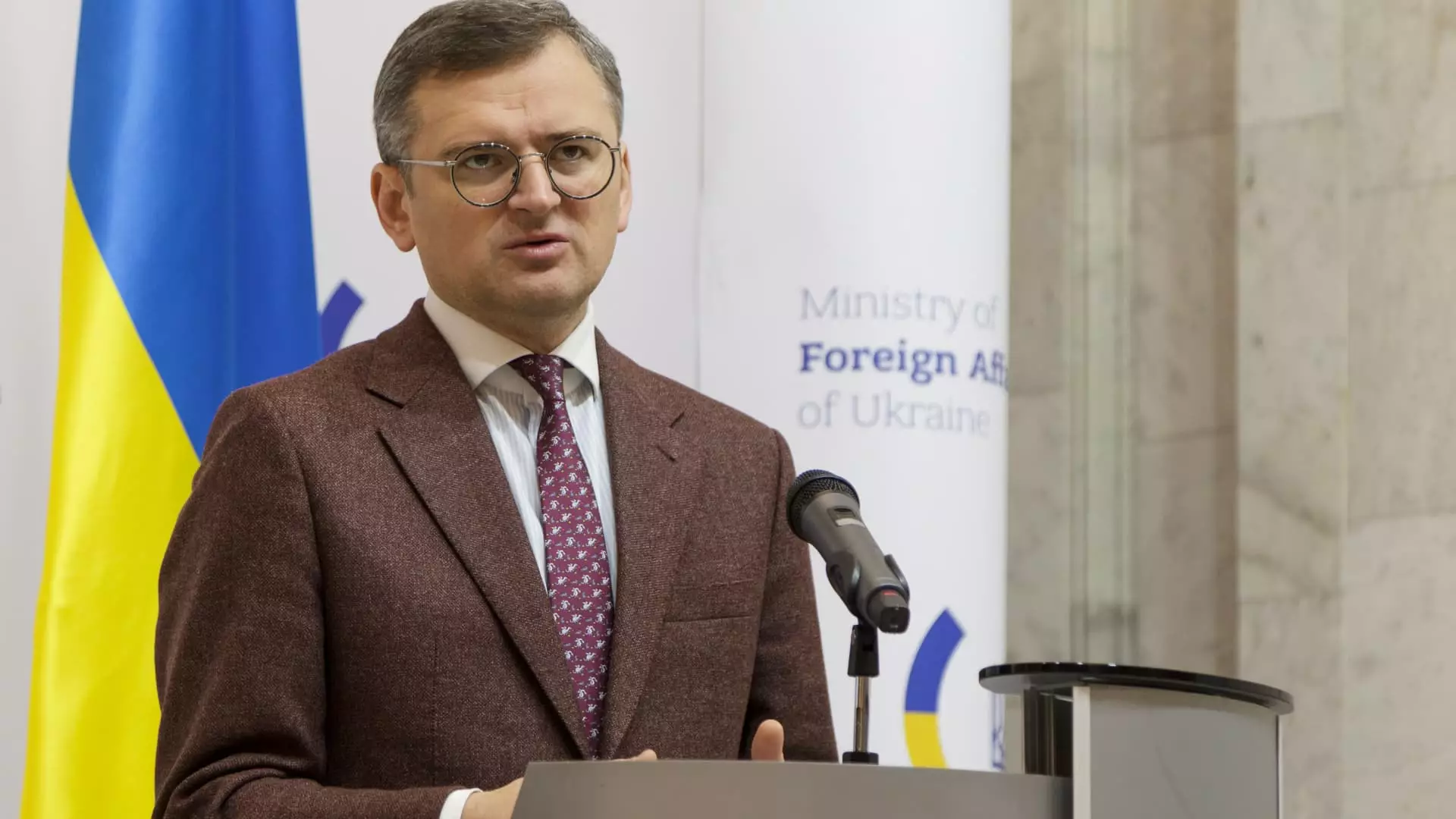The ongoing conflict between Ukraine and Russia continues to raise alarm bells across Europe. As tensions escalate, the stakes have never been higher, with former Ukrainian Foreign Minister Dmytro Kuleba warning that a Ukrainian defeat could spell disaster for the continent. This article examines Kuleba’s insights on the implications of the conflict, NATO’s role, and the geopolitical landscape that seems destined for further turmoil.
Kuleba’s assertion that “if Ukraine fails, war will come to the streets of European cities” reverberates with dire implications. The past few decades have demonstrated how swiftly conflicts can spill over borders, igniting widespread chaos and upheaval. Kuleba argues that while Russian President Vladimir Putin may not possess the capability to engage in multi-front wars concurrently, he has sufficient resources to wage a singular, aggressive campaign. In this view, a weakened Ukraine could act as an invitation for Russia to extend its influence into Europe, destabilizing nations that have long maintained relative tranquility. The notion that failure in Ukraine could precipitate a broader European conflict should not be overlooked by policymakers, who must consider the wider ramifications of a Russian victory.
One of the critical aspects of Kuleba’s commentary centers on Ukraine’s long-sought NATO membership. While the concept of security guarantees has been discussed as an alternative, Kuleba presents a strong case that these assurances are insufficient. He notes that existing agreements have not prevented the current crisis; hence, NATO membership is not merely desirable but essential to deter future aggression. The need for unanimity among NATO members complicates this process, as some nations harbor apprehensions about provoking Russia. Yet, the possible expansion of Russian power may become an even more pressing concern if Ukraine’s aspirations for NATO membership are indefinitely postponed.
A shift in U.S. leadership could also impact Ukraine’s NATO ambitions. Kuleba’s remarks following President-elect Donald Trump’s talks with Ukrainian President Volodymyr Zelenskyy indicate a cautious optimism, yet he expresses skepticism about what approach the new administration will adopt. Trump’s willingness to push for an “immediate ceasefire” might seem beneficial on the surface, but such calls often overlook the underlying issues that need addressing to ensure lasting peace. Kuleba emphasizes that real peace hinges on decisive actions emanating from Moscow rather than Kyiv, hinting at the complexity of negotiating a settlement that preserves Ukraine’s integrity.
The negotiations for peace between Ukraine and Russia are fraught with complications. Kuleba articulates the unwavering commitment of President Zelenskyy to protect Ukraine’s territorial sovereignty, stating that any concessions that jeopardize this are constitutionally untenable. This resoluteness is essential, considering that any perceived weakness can embolden aggressors. Kuleba’s insights serve as a sobering reminder that while diplomatic efforts are vital, they can often be futile in the face of an uncompromising opponent.
Moreover, domestic pressures and the need for public support complicate the prospect of negotiations. The reality is that a significant portion of the Ukrainian population views ceding territory as a betrayal of their national identity and values. This sentiment poses a significant hurdle for any political leader contemplating concessions, further entrenching the conflict.
Kuleba also highlights the tactical aspect of the conflict, emphasizing Ukraine’s right to respond to Russian aggression decisively. As attacks escalate, particularly against critical infrastructure, the imperative for Ukraine to adopt a proactive stance becomes clear. While some may decry aggressive military responses as a means of escalation—a sentiment echoed by figures like Trump—the reality is that inaction could lead to further territorial losses and weaken Ukraine’s position.
In this perilous context, Kuleba’s arguments underscore a critical reality: Ukraine must not only defend itself but also project strength to deter future hostilities. The narrative that “when the enemy escalates, you must respond in kind” reflects a broader debate within international relations about the balance between diplomacy and military preparedness.
The future of Ukraine is intricately connected to the stability of Europe. As Kuleba’s insights reveal, the implications of a Russian victory extend far beyond Ukraine’s borders, placing the entire continent in jeopardy. A proactive approach to securing NATO membership, addressing the complexities of peace negotiations, and preparing militarily for any eventualities are all critical steps for Ukraine and its allies. As the conflict rages on, Europe must act decisively to protect its interests, ensuring that the lessons of history guide its response to this modern crisis. The time for action is now, as the potential fallout is not merely a Ukrainian issue but a European one that demands urgent attention.


Leave a Reply